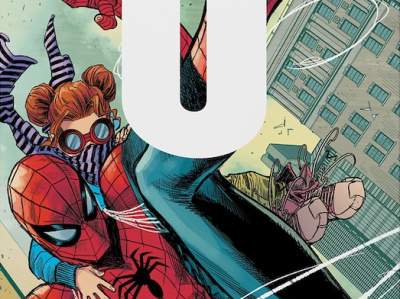Torsten Adair of Barnes & Noble Lincoln Triangle in New York City saw Joe Krolik's comments on manga sales (see 'Joe Krolik of Comics America on Graphic Novel Sales') and has a very different opinion on the future of manga, and a ton of great suggestions on retailing manga successfully:
In the Talk Back column of September 20, Joe Krolik of Comics America writes:
'The fact remains that the North American market is not the Japanese market for numerous reasons. As I have maintained for many months, North American sensibilities in our industry will resist absorption of the overproduction in manga coming our way, unless publishers take heed now and put the brakes on before it's too late. Better a smaller stable market for quality product than no market at all after an indiscriminate glut.'
I hold a differing opinion. First, a publisher will not unilaterally cut back on publishing, as other publishers will rush to fill the void. If a publisher does not acquire the rights to a particular series, that series might be acquired by another publisher. Second, the product being offered already has a record in Japan. If a title is a critical and/or commercial success in Japan, then it will probably be so in America. The initial risk is less than for an original title. Third, the current market differs from that seen during black-and-white explosion of the mid-1980s for two reasons:
1) The media channels which promote manga are more numerous than they were in the 1980s or even the 1990s. During the 1980s, if you wanted to enjoy manga or anime, you needed to either visit a specialty retailer or order product from a catalog. During the 1990s, a few broadcasters (Fox, the Sci Fi Channel) promoted anime, and a few general retailers and publishers began to offer product outside the Direct Market (Suncoast, Viz). During the end of the 1990s, Pokemon became the first Japanese property to exploit the Mass Market, with collectible cards, movies, television cartoons, comic books, and toys being very successful (there was even a Volkswagen Pokemon Beetle!). The success of Pokemon encouraged the importation of other properties, and we now see Japanese anime on numerous television channels.
2) Manga and comic books are now marketed to a younger audience. During the 1980s, most fans of anime were typically science fiction fans, either college students or older. Today's market is younger, with many manga titles selling to a younger audience, primarily teens and tweens. Librarians are an invisible market force. Many libraries stock graphic novels in their Young Adult sections to entice reluctant readers into the building. I believe some titles will lose popularity as the media promotes the next big thing (for example, how many Pokemon titles do you sell now?). Some series will last longer, as new readers discover entertaining and timeless titles. I started reading Ranma 1/2 in comic book form fifteen years ago. It continues to sell well as a graphic novel. I feel that the manga market will eventually reflect the single-issue comic book market that exists now. A reader will discover a title, and wish to read all of the issues available. I hope, as a reader, that American retailers will replicate the rental manga system that exists now in Japan, or at least institute a used book system which allows readers to trade in old volumes for new.
There is some fear that the Industry will see a recurrence of the graphic novel bust of the 1980s, when numerous mainstream publishers rushed to publish titles. I feel that with the younger customer base that exists now, the cross marketing of various media outlets, and computerized modeling of inventory, the Industry will most likely plateau and stabilize. I believe that manga and graphic novels can be just as successful (and just as variable) as mysteries, romance, and science fiction.
Librarians and retailers both have to deal with a large selection of titles and limited budgets. Here are some ways that retailers can prosper:
1) Reading Groups. Select the first volume of a series. Offer it at a slight discount for the month before the group meets. Customers can then meet, talk about the book, and socialize. If they like the first volume, they'll probably like the second, third, and fourteenth volumes as well. There is some risk involved in anticipating sales on non-returnable product. However, publishers and distributors should make allowances for this, as this system encourages future sales.
1a) Anime can also be promoted in the same way. This requires permission from the publisher or distributor. Even if your store does not sell DVDs, they can still be used to promote the manga (I became a fan of Ranma 1/2 manga because a friend described the convoluted soap opera of the anime he had seen). If the anime is offered by your distributor, you can also place special orders for your customers, and possibly create another revenue stream for your store.
2) Automated ordering. This depends more on your distributor to give you detailed inventory information. If you offer a subscription service, it can easily accommodate graphic novels as well. Preprint a small postcard that can either be dropped in the customer's subscription pile, or, if not a regular customer, can be mailed to their home. If the store budget is tight, maybe use automated email or the telephone. Manga publishers announce their new titles far in advance (Tokyopop has titles scheduled through March 2005), so there is more time for a retailer to market the new volumes. Publishers might even offer press releases and newsletters by email. A savvy retailer could cut-and-paste the information and forward the email to specific customers. Offer a discount on prepaid orders, or even offer an actual subscription service where the customer leaves a credit card number on file and the book is automatically ordered.
3) Graphic novel rentals. Customers place $10 as a security deposit. Each rental costs $1, or more if the title is new and in demand, or a hardcover edition. If the customer wants to purchase the rental copy, subtract the number of rentals from the cover price (after six $1 rentals, a $10 book would cost $4 used). Once the rentals have covered the cost of the book, sell the book for $1. If space is a premium, rent just the first volume of each series, and then promote your subscription service. This is the same strategy used in Free Comic Book Day. The first one is always free. Get them hooked.
4) Is there a local fan convention nearby? Most smaller conventions are like Dragon*Con. They offer a wide selection of programming to draw the greatest number of fans. Offer to sponsor a manga or anime guest in exchange for a large ad in the program book and a preferential location in the dealers room (say, right in front of the entrance to the room). Sometimes, the guest does not have to be creative, or expensive. The senior illustrator for Star Trek will be as interesting as one of the supporting actors, and most likely cheaper and easier to deal with. The editor of a manga line will be just as interesting as a writer or illustrator, and possibly more popular if he or she has lots of juicy announcements and is willing to review portfolios or offer advice. Perhaps he can bring an exclusive, hot-off-the-press title that you can sell on consignment. Or perhaps he can bring rarities or signed merchandise from the office which can be either be auctioned off during the convention or raffled at your dealer table (of course, with the raffle, you'll acquire names and addresses for your store's mailing list). And if you sell items from the dealer's room, insert a coupon so that the customer will be more likely to visit your store, and not your competition, after the convention is over with.
5) Compete with other retailers. Returnable vendors might cut into your discount, but offer faster delivery, less risk, and better availability. Guaranteed sales can be channeled through your Direct Market vendors. As a specialty retailer, you are an expert to your customer. As a small business, you can act more quickly than a corporation. As a local business, you can network with the community in a variety of ways. Does the local newspaper interview you when a new comic book movie comes out? Did the local TV station film your store during Free Comic Book Day? Offer to make their jobs easier, and maybe bribe them with a free comic book or two. Do you offer advice and a discount for librarians and educators who order books for their patrons?
These views and suggestions are mine alone. They are offered with amity and goodwill. My employer, Barnes & Noble, has their own experts and viewpoints regarding this market, and do not pay me to expound upon graphic novels and comic books.







